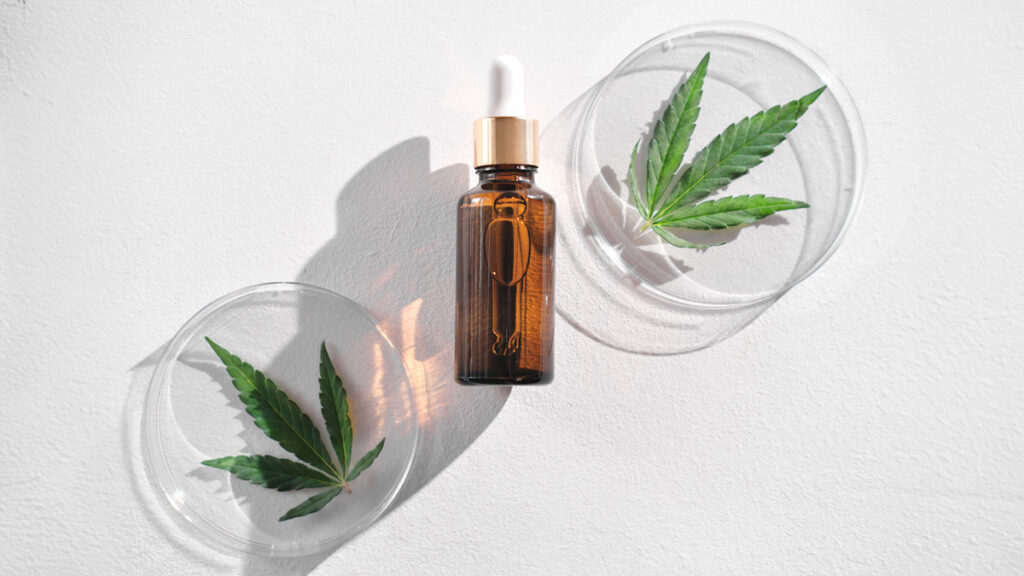Cannabis first, hallucinogens next? New medical treatments on the NHS

According to Mind UK, the mental health charity, one in six people in England report experiencing a common mental health problem, such as anxiety and depression, in any given week.
Whilst this figure is likely to under-represent the true number of people who experience such problems, what’s clear is that these mental health issues are incredibly common. Traditionally, these mental health problems have been treated via antidepressants, however that could be all about to change.
Research on the use of hallucinogens to treat depression has advanced rapidly in recent years, leading some experts to believe they could be legal on the NHS within the next 18 months. And with the medicinal use of cannabis becoming legal recently, who’s to say hallucinogens won’t be next?
The history of mind-altering medicines
If you’re there thinking ‘How is hallucinating a suitable treatment for depression?’, rest assured that the prescribed dosage is unlikely to be high enough to cause such effects. The idea of mind-altering substances having a positive effect on one’s wellbeing is also nothing new. For instance, Native Americans are believed to have ritually used Peyote, a small cactus with psychoactive alkaloids, for thousands of years, with the drug being reputed by some to promote morality and ethical behaviour.
More recently, LSD was widely used for medical research in the 1950s and 60s to treat conditions like schizophrenia and alcohol dependence. The US banned the drug in 1966 at a time when proper clinical trials were advancing, potentially limiting our knowledge of the drug’s medicinal qualities severely. Mescaline was also used to treat psychiatric disorders shortly after the ending of World War Two.
Nowadays however, only one of the major modern hallucinogenic drugs (psilocybin, mescaline, DMT, ketamine and MDMA) is legal in some form. Ketamine, currently a Class B drug in the UK, is actually administered for use as an anaesthetic, although its usage could soon change.
Ketamine as a treatment for depression
Ketamine is a powerful general anaesthetic that stops people from feeling pain. It’s typically used to anaesthetise humans and animals during operations. However, it’s also a common party drug that is known by a variety of names, such as Special K and Donkey Dust.
Modern studies of the drug have found it to have a positive effect on those suffering from depression. Some of the studies also show no correlation between the drug’s psychoactive effect and antidepressant effect.
A Metro story reported that esketamine, a drug derived from ketamine, could even be available on the NHS within 18 months. Clinical trials of this drug are reported to have gone extremely well, whilst the alleviation of depressive symptoms is reported to have occurred much faster than with antidepressants, which can take four to six weeks to work to their full potential.
Like all drugs, long-term use of ketamine comes with significant health risks, notably serious bladder damage. Although it’s not yet clear whether such issues will occur with long-term use of esketamine, if it is rolled out on the NHS, the drug could have a significant impact on the organisation and its users.
Psilocybin
Psilocybin is a naturally occurring psychedelic compound produced by more than 200 species of mushrooms. Psychoactive or ‘magic’ mushrooms have long been taken by recreational drug users across the world, however, the recent scientific studies into psilocybin’s ability to treat depression have yielded positive results. For example, a study of 19 patients in London found that all 19 patients had their depression scores drop a week after taking the drug with the average depression score dropping by half.
With the recent legalisation of medicinal cannabis, it’s clear that attitudes towards drugs are changing. And whilst there’s been no announcement of psilocybin becoming available to NHS users, it will be interesting to see if this changes in the near future, particularly in light of changing attitudes.
Antidepressants and the NHS
In the UK, anti-depressants are only available via a prescription. With the current cost of a prescription in England being £8.80 and 4 million long-term users of antidepressants in the UK, it’s safe to say the NHS receives a significant amount of money through antidepressants. Of course, this could change with the introduction of esketamine and other hallucinogens. If these are made available on the NHS, will it eventually be assumed that they’re better than current antidepressants when they’re not? If so, what kind of financial impact could this have?
Well, according to a report from the Health and Social Care Information Centre, in 2015 antidepressants cost the NHS £780,000 per day. This figure is linked to their production costs and how much the NHS pays to buy them. Although it’s not yet known how much esketamine and psilocybin would cost to produce, if they can be produced more cheaply, the NHS could potentially save a lot of money. If this also leads to less users using the currently available antidepressants, the financial gains for the NHS could be even higher. On the other hand, if they cost more to produce, it could have the total opposite effect.
The number of new users of antidepressants is also falling. Figures show a decline from just over 179,000 new users in April 2016 to just over 132,000 in March 2018. Although there are no empirical studies suggesting the reasons why there are less new starters, if an alternative, more effective cure becomes available on the NHS in the form of a hallucinogenic, will this figure start to rise again? Seemingly, only time will tell.
Of course, taking any drug for too long also comes with the risk of becoming reliant on it. If treated for antidepression with esketamine, for example, what happens when users run out and they’re unable to fill their prescription? Will they resort to buying ketamine illegally in order to alleviate withdrawal symptoms? Whilst this is possible, users of the currently available antidepressants have also experienced withdrawals; in a report published by the Independent, over half of patients who tried to quit antidepressants experienced them. So arguably, this shouldn’t be seen as a reason to dismiss hallucinogens as a treatment for depression.
And if hallucinogens prove to be a more effective treatment for depression than what’s currently available, surely this is what’s most important?



